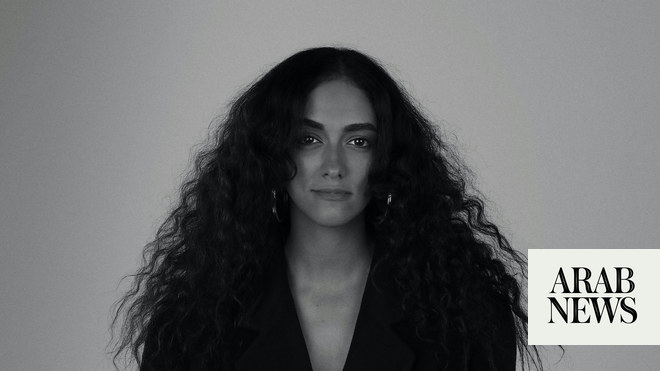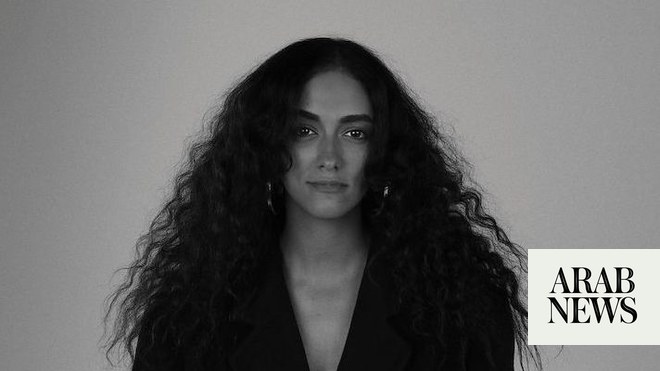
DUBAI: For emerging Egyptian director Haya Khairat, it was too good to be true. One day in February, an email arrived from none other than the organizers of the Cannes Film Festival. She was going to be the recipient of the Angénieux Special Encouragement Award at the movie industry’s most prestigious festival. Khairat ignored the message.
For the latest updates, follow us on Instagram @arabnews.lifestyle
She thought it was just spam, she explains. But when the team contacted her again through her Instagram account, she finally believed the news.
“Honestly, in that minute, I was super-overwhelmed and scared. It was big. I needed to think about it. I was thinking, ‘Why are they awarding me?’ It’s going to open many doors for me,” Khairat tells Arab News. “It’s going to be a turning point.”
The award was launched in 2019 to support young filmmakers with the potential to excel in the industry. It is named after the French company Angénieux, a manufacturer of top-quality camera lenses (some of which it will provide to Khairat for her upcoming projects). She is reportedly the first Arab to receive this prize and will be attending Cannes for the first time this month, something that she says has been a dream of hers since childhood. And, she notes: “You’re not just on the red carpet, but you are being recognized.”
Khairat says she was born with a love for images and cinema. Her father had no artistic background, but he consistently supported his daughter’s passion. Every Sunday, when she was still a young child, he would take her on photography tours of Cairo. On their way home, they would patiently wait for her pictures to be developed at a studio.
When it comes to cinema, Khairat — who was born in the Nineties — cites Arab screen legends Soad Hosny, Mona Zaki, and Nadine Labaki as her biggest inspirations. She also had a soft spot for Alfonso Cuarón’s 1995 Oscar-nominated film “A Little Princess” — a tearjerking story of a girls’ boarding school in the First World War.
“I was different from the other kids in school,” she says. “The one thing I always daydreamed about was going home and watching all the different series and music videos (on television).”
She would save up money given to her by her family to buy small digital cameras, and began taking commissions — portraiture, weddings, proms, and more — when she was 16. She graduated from The High Cinema Institute of Cairo, and her first big break was as director of photography for a major tourism campaign — “This Is Egypt” — in 2016.
Three years later, she started directing advertisements for clients including Vodafone, Panadol, Emirates NBD Bank, Cadbury, and Emaar. She also worked on Arabic TV series, and as DOP on 2019’s “Dark Chocolate,” a short film about a girl who is searching for her missing boyfriend, while uncovering secrets of the Zamalek island in Cairo, where the protagonist lives. It was a winner at the Cairo Film Festival.
Khairat’s style of visual storytelling is concise and uncomplicated, making it all the more powerful. She’s is interested in exploring human emotions. Her award-winning work for brands’ CSR campaigns has covered themes including breast-cancer awareness, the challenges of motherhood, and shielding little girls from abuse and forced or early marriage. They are a self-described “wake-up call” and “injection” that is quickly effective. “If I can make you feel something, then I’ve won,” she says.
Khairat believes a person needs to have certain qualities to be a successful director. “Being socially and politically smart is a key point,” she says. “Being a team player is also important. It’s an individual career, but it requires a capacity to hear out other people.”
As for the industry itself, in Egypt and elsewhere, she believes that priorities have shifted. “In the old days, they cared about the quality of a movie more than personal gain,” she says.
The Cannes award is a great honor, but of course there is a lot more that Khairat would like to accomplish, including having her films recognized internationally. She is already thinking of the legacy she hopes to create for herself.
“I’d like not to be remembered as physically ‘me,’ but for my name to be remembered in the industry,” she says. “I’d like people to say: ‘She made us feel something with that film.’“












